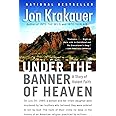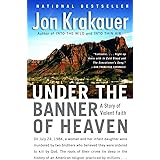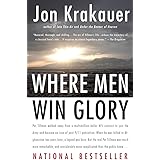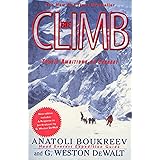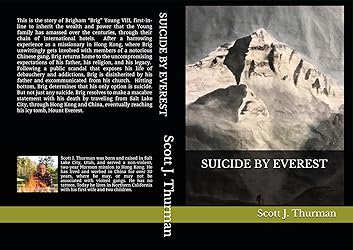
Enjoy fast, free delivery, exclusive deals, and award-winning movies & TV shows with Prime
Try Prime
and start saving today with fast, free delivery
Amazon Prime includes:
Fast, FREE Delivery is available to Prime members. To join, select "Try Amazon Prime and start saving today with Fast, FREE Delivery" below the Add to Cart button.
Amazon Prime members enjoy:- Cardmembers earn 5% Back at Amazon.com with a Prime Credit Card.
- Unlimited Free Two-Day Delivery
- Streaming of thousands of movies and TV shows with limited ads on Prime Video.
- A Kindle book to borrow for free each month - with no due dates
- Listen to over 2 million songs and hundreds of playlists
- Unlimited photo storage with anywhere access
Important: Your credit card will NOT be charged when you start your free trial or if you cancel during the trial period. If you're happy with Amazon Prime, do nothing. At the end of the free trial, your membership will automatically upgrade to a monthly membership.
Buy new:
-45% $9.99$9.99
Ships from: Amazon.com Sold by: Amazon.com
Save with Used - Very Good
$8.34$8.34
Ships from: Amazon Sold by: Jenson Books Inc





Download the free Kindle app and start reading Kindle books instantly on your smartphone, tablet, or computer - no Kindle device required.
Read instantly on your browser with Kindle for Web.
Using your mobile phone camera - scan the code below and download the Kindle app.

OK
Image Unavailable
Color:
-

-
-
- To view this video download Flash Player
-

-
 2 VIDEOS
2 VIDEOS -

 Audible sample Sample
Audible sample Sample 


Into Thin Air: A Personal Account of the Mt. Everest Disaster Paperback – October 19, 1999
Purchase options and add-ons
"A harrowing tale of the perils of high-altitude climbing, a story of bad luck and worse judgment and of heartbreaking heroism." —PEOPLE
A bank of clouds was assembling on the not-so-distant horizon, but journalist-mountaineer Jon Krakauer, standing on the summit of Mt. Everest, saw nothing that "suggested that a murderous storm was bearing down." He was wrong.
By writing Into Thin Air, Krakauer may have hoped to exorcise some of his own demons and lay to rest some of the painful questions that still surround the event. He takes great pains to provide a balanced picture of the people and events he witnessed and gives due credit to the tireless and dedicated Sherpas. He also avoids blasting easy targets such as Sandy Pittman, the wealthy socialite who brought an espresso maker along on the expedition. Krakauer's highly personal inquiry into the catastrophe provides a great deal of insight into what went wrong. But for Krakauer himself, further interviews and investigations only lead him to the conclusion that his perceived failures were directly responsible for a fellow climber's death. Clearly, Krakauer remains haunted by the disaster, and although he relates a number of incidents in which he acted selflessly and even heroically, he seems unable to view those instances objectively. In the end, despite his evenhanded and even generous assessment of others' actions, he reserves a full measure of vitriol for himself.
This updated trade paperback edition of Into Thin Air includes an extensive new postscript that sheds fascinating light on the acrimonious debate that flared between Krakauer and Everest guide Anatoli Boukreev in the wake of the tragedy. "I have no doubt that Boukreev's intentions were good on summit day," writes Krakauer in the postscript, dated August 1999. "What disturbs me, though, was Boukreev's refusal to acknowledge the possibility that he made even a single poor decision. Never did he indicate that perhaps it wasn't the best choice to climb without gas or go down ahead of his clients." As usual, Krakauer supports his points with dogged research and a good dose of humility. But rather than continue the heated discourse that has raged since Into Thin Air's denouncement of guide Boukreev, Krakauer's tone is conciliatory; he points most of his criticism at G. Weston De Walt, who coauthored The Climb, Boukreev's version of events. And in a touching conclusion, Krakauer recounts his last conversation with the late Boukreev, in which the two weathered climbers agreed to disagree about certain points. Krakauer had great hopes to patch things up with Boukreev, but the Russian later died in an avalanche on another Himalayan peak, Annapurna I.
In 1999, Krakauer received an Academy Award in Literature from the American Academy of Arts and Letters--a prestigious prize intended "to honor writers of exceptional accomplishment." According to the Academy's citation, "Krakauer combines the tenacity and courage of the finest tradition of investigative journalism with the stylish subtlety and profound insight of the born writer. His account of an ascent of Mount Everest has led to a general reevaluation of climbing and of the commercialization of what was once a romantic, solitary sport; while his account of the life and death of Christopher McCandless, who died of starvation after challenging the Alaskan wilderness, delves even more deeply and disturbingly into the fascination of nature and the devastating effects of its lure on a young and curious mind."
- Reading age8 years and up
- Print length332 pages
- LanguageEnglish
- Lexile measure1320L
- Dimensions5.15 x 0.76 x 7.93 inches
- PublisherVintage
- Publication dateOctober 19, 1999
- ISBN-100385494785
- ISBN-13978-0385494786
The Amazon Book Review
Book recommendations, author interviews, editors' picks, and more. Read it now.
Frequently bought together

Similar items that may deliver to you quickly
 I quickly came to understand that climbing Everest was primarily about enduring pain. And in subjecting ourselves to week after week of toil, tedium, and suffering, it struck me that most of us were probably seeking, above all else, something like a state of grace.Highlighted by 3,103 Kindle readers
I quickly came to understand that climbing Everest was primarily about enduring pain. And in subjecting ourselves to week after week of toil, tedium, and suffering, it struck me that most of us were probably seeking, above all else, something like a state of grace.Highlighted by 3,103 Kindle readers My hunger to climb had been blunted, in short, by a bunch of small satisfactions that added up to something like happiness.Highlighted by 2,439 Kindle readers
My hunger to climb had been blunted, in short, by a bunch of small satisfactions that added up to something like happiness.Highlighted by 2,439 Kindle readers But at times I wondered if I had not come a long way only to find that what I really sought was something I had left behind.Highlighted by 1,969 Kindle readers
But at times I wondered if I had not come a long way only to find that what I really sought was something I had left behind.Highlighted by 1,969 Kindle readers And thus, shortly before noon on May 29, 1953, did Hillary and Tenzing become the first men to stand atop Mount Everest.Highlighted by 1,235 Kindle readers
And thus, shortly before noon on May 29, 1953, did Hillary and Tenzing become the first men to stand atop Mount Everest.Highlighted by 1,235 Kindle readers
Editorial Reviews
Review
"This is a great book, among the best ever on mountaineering. Gracefully and efficiently written, carefully researched, and actually lived by its narrator, it shares a similar theme with another sort of book, a novel called "The Great Gatsby." —The Washington Post
"Into Thin Air ranks among the great adventure books of all time." —The Wall Street Journal
"Krakauer is an extremely gifted storyteller as well as a relentlessly honest and even-handed journalist, the story is riveting and wonderfully complex in its own right, and Krakauer makes one excellent decision after another about how to tell it.... To call the book an adventure saga seems not to recognize that it is also a deeply thoughtful and finely wrought philosophical examination of the self." —Elle
"Hypnotic, rattling.... Time collapses as, minute by minute, Krakauer rivetingly and movingly chronicles what ensued, much of which is near agony to read.... A brilliantly told story that won't go begging when the year's literary honors are doled out." —Kirkus Reviews
"Though it comes from the genre named for what it isn't (nonfiction), this has the feel of literature: Krakauer is Ishmael, the narrator who lives to tell the story but is forever trapped within it.... Krakauer's reporting is steady but ferocious. The clink of ice in a glass, a poem of winter snow, will never sound the same." —Mirabella
"Into Thin Air is a remarkable work of reportage and self-examination.... And no book on the 1996 disaster is likely to consider so honestly the mistakes that killed his colleagues." —Newsday
"A harrowing tale of the perils of high-altitude climbing, a story of bad luck and worse judgment and of heartbreaking heroism." —People
"In this movingly written book, Krakauer describes an experience of such bone-chilling horror as to persuade even the most fanatical alpinists to seek sanctuary at sea level." —Sports Illustrated
From the Inside Flap
By writing Into Thin Air, Krakauer may have hoped to exorcise some of his own demons and lay to rest some of the painful questions that still surround the event. He takes great pains to provide a balanced picture of the people and events he witnessed and gives due credit to the tireless and dedicated Sherpas. He also avoids blasting easy targets such as Sandy Pittman, the wealthy socialite who brought an espresso maker along on the expedition. Krakauer's highly personal inquiry into the catastrophe provides a great deal of insight into what went wrong. But for Krakauer himself, further interviews and investigations only lead him to the conclusion that his perceived failures were directly responsible for a fellow climber's death. Clearly, Krakauer remains haunted by the disaster, and although he relates a number of incidents in which he acted selflessly and even heroically, he seems unable to view those instances objectively. In the end, despite his evenhanded and even generous assessment of others' actions, he reserves a full measure of vitriol for himself.
This updated trade paperback edition of Into Thin Air includes an extensive new postscript that sheds fascinating light on the acrimonious debate that flared between Krakauer and Everest guide Anatoli Boukreev in the wake of the tragedy. "I have no doubt that Boukreev's intentions were good on summit day," writes Krakauer in the postscript, dated August 1999. "What disturbs me, though, was Boukreev's refusal to acknowledge the possibility that he made even a single poor decision. Never did he indicate that perhaps it wasn't the best choice to climb without gas or go down ahead of his clients." As usual, Krakauer supports his points with dogged research and a good dose of humility. But rather than continue the heated discourse that has raged since Into Thin Air's denouncement of guide Boukreev, Krakauer's tone is conciliatory; he points most of his criticism at G. Weston De Walt, who coauthored The Climb, Boukreev's version of events. And in a touching conclusion, Krakauer recounts his last conversation with the late Boukreev, in which the two weathered climbers agreed to disagree about certain points. Krakauer had great hopes to patch things up with Boukreev, but the Russian later died in an avalanche on another Himalayan peak, Annapurna I.
In 1999, Krakauer received an Academy Award in Literature from the American Academy of Arts and Letters--a prestigious prize intended "to honor writers of exceptional accomplishment." According to the Academy's citation, "Krakauer combines the tenacity and courage of the finest tradition of investigative journalism with the stylish subtlety and profound insight of the born writer. His account of an ascent of Mount Everest has led to a general reevaluation of climbing and of the commercialization of what was once a romantic, solitary sport; while his account of the life and death of Christopher McCandless, who died of starvation after challenging the Alaskan wilderness, delves even more deeply and disturbingly into the fascination of nature and the devastating effects of its lure on a young and curious mind."
From the Back Cover
By writing Into Thin Air, Krakauer may have hoped to exorcise some of his own demons and lay to rest some of the painful questions that still surround the event. He takes great pains to provide a balanced picture of the people and events he witnessed and gives due credit to the tireless and dedicated Sherpas. He also avoids blasting easy targets such as Sandy Pittman, the wealthy socialite who brought an espresso maker along on the expedition. Krakauer's highly personal inquiry into the catastrophe provides a great deal of insight into what went wrong. But for Krakauer himself, further interviews and investigations only lead him to the conclusion that his perceived failures were directly responsible for a fellow climber's death. Clearly, Krakauer remains haunted by the disaster, and although he relates a number of incidents in which he acted selflessly and even heroically, he seems unable to view those instances objectively. In the end, despite his evenhanded and even generous assessment of others' actions, he reserves a full measure of vitriol for himself.
This updated trade paperback edition of Into Thin Air includes an extensive new postscript that sheds fascinating light on the acrimonious debate that flared between Krakauer and Everest guideAnatoli Boukreev in the wake of the tragedy. "I have no doubt that Boukreev's intentions were good on summit day," writes Krakauer in the postscript, dated August 1999. "What disturbs me, though, was Boukreev's refusal to acknowledge the possibility that he made even a single poor decision. Never did he indicate that perhaps it wasn't the best choice to climb without gas or go down ahead of his clients." As usual, Krakauer supports his points with dogged research and a good dose of humility. But rather than continue the heated discourse that has raged since Into Thin Air's denouncement of guide Boukreev, Krakauer's tone is conciliatory; he points most of his criticism at G. Weston De Walt, who coauthored The Climb, Boukreev's version of events. And in a touching conclusion, Krakauer recounts his last conversation with the late Boukreev, in which the two weathered climbers agreed to disagree about certain points. Krakauer had great hopes to patch things up with Boukreev, but the Russian later died in an avalanche on another Himalayan peak, Annapurna I.
In 1999, Krakauer received an Academy Award in Literature from the American Academy of Arts and Letters--a prestigious prize intended "to honor writers of exceptional accomplishment." According to the Academy's citation, "Krakauer combines the tenacity and courage of the finest tradition of investigative journalism with the stylish subtlety and profound insight of the born writer. His account of an ascent of Mount Everest has led to a general reevaluation of climbing and of the commercialization of what was once a romantic, solitary sport; while his account of the life and death of Christopher McCandless, who died of starvation afterchallenging the Alaskan wilderness, delves even more deeply and disturbingly into the fascination of nature and the devastating effects of its lure on a young and curious mind."
About the Author
Excerpt. © Reprinted by permission. All rights reserved.
Among my five teammates who reached the top, four, including Hall, perished in a rogue storm that blew in without warning while we were still high on the peak. By the time I'd descended to Base Camp nine climbers from four expeditions were dead, and three more lives would be lost before the month was out.
The expedition left me badly shaken, and the article was difficult to write. Nevertheless, five weeks after I returned from Nepal I delivered a manuscript to Outside, and it was published in the September issue of the magazine. Upon its completion I attempted to put Everest out of my mind and get on with my life, but that turned out to be impossible. Through a fog of messy emotions, I continued trying to make sense of what had happened up there, and I obsessively mulled the circumstances of my companions' deaths.
The Outside piece was as accurate as I could make it under the circumstances, but my deadline had been unforgiving, the sequence of events had been frustratingly complex, and the memories of the survivors had been badly distorted by exhaustion, oxygen depletion, and shock. At one point during my research I asked three other people to recount an incident all four of us had witnessed high on the mountain, and one of us could agree on such crucial facts as the time, what had been said, or even who had been present. Within days after the Outside article went to press, I discovered that a few of the details I'd reported were in error. Most were minor inaccuracies of the sort that inevitably creep into works of deadline journalism, but one of my blunders was in no sense minor, and it had a devastating impact on the friends and family of one of the victims.
Only slightly less disconcerting than the article's factual errors was the material that necessarily had to be omitted for lack of space. Mark Bryant, the editor of Outside, and Larry Burke, the publisher, had given me an extraordinary amount of room to tell the story: they ran the piece at 17,000 words -- four or five times as long as a typical magazine feature. Even so, I felt that it was much too abbreviated to do justice to the tragedy. The Everest climb had rocked my life to its core, and it became desperately important for me to record the events in complete detail, unconstrained by a limited number of column inches. This book is the fruit of that compulsion.
The staggering unreliability of the human mind at high altitude made the research problematic. To avoid relying excessively on my own perceptions, I interviewed most of the protagonists at great length and on multiple occasions. When possible I also corroborated details with radio logs maintained by people at Base Camp, where clear thought wasn't in such short supply. Readers familiar with the Outside article may notice discrepancies between certain details (primarily matters of time) reported in the magazine and those reported in the book; the revisions reflect new information that has come to light since publication of the magazine piece.
Several authors and editors I respect counseled me not to write the book as quickly as I did; they urged me to wait two or three years and put some distance between me and the expedition in order to gain some crucial perspective. Their advice was sound, but in the end I ignored it -- mostly because what happened on the mountain was gnawing my guts out. I thought that writing the book might purge Everest from my life.
It hasn't, of course. Moreover, I agree that readers are often poorly served when an author writes as an act of catharsis, as I have done here. But I hoped something would be gained by spilling my soul in the calamity's immediate aftermath, in the roil and torment of the moment. I wanted my account to have a raw, ruthless sort of honesty that seemed in danger of leaching away with the passage of time and the dissipation of anguish.
Some of the same people who warned me against writing hastily had also cautioned me against going to Everest in the first place. There were many, many fine reasons not to go, but attempting to climb Everest is an intrinsically irrational act -- a triumph of desire over sensibility. Any person who would seriously consider it is almost by definition beyond the sway of reasoned argument.
The plain truth is that I knew better but went to Everest anyway. And in doing so I was a party to the death of good people, which is something that is apt to remain on my conscience for a very long time.
Product details
- Publisher : Vintage; Reprint edition (October 19, 1999)
- Language : English
- Paperback : 332 pages
- ISBN-10 : 0385494785
- ISBN-13 : 978-0385494786
- Reading age : 8 years and up
- Lexile measure : 1320L
- Item Weight : 2.31 pounds
- Dimensions : 5.15 x 0.76 x 7.93 inches
- Best Sellers Rank: #4,948 in Books (See Top 100 in Books)
- #1 in Mountain Climbing
- #8 in Survival Biographies
- #18 in Traveler & Explorer Biographies
- Customer Reviews:
About the author

In 1999 Jon Krakauer received an Academy Award in Literature from the American Academy of Arts and Letters. According to the award citation, "Krakauer combines the tenacity and courage of the finest tradition of investigative journalism with the stylish subtlety and profound insight of the born writer. His account of an ascent of Mount Everest has led to a general reevaluation of climbing and of the commercialization of what was once a romantic, solitary sport; while his account of the life and death of Christopher McCandless, who died of starvation after challenging the Alaskan wilderness, delves even more deeply and disturbingly into the fascination of nature and the devastating effects of its lure on a young and curious mind."
www.instagram.com/krakauernotwriting/
http://www.jonkrakauer.com/additional-reading
https://medium.com/@jonkrakauer
www.facebook.com/jonkrakauer/
Customer reviews
Customer Reviews, including Product Star Ratings help customers to learn more about the product and decide whether it is the right product for them.
To calculate the overall star rating and percentage breakdown by star, we don’t use a simple average. Instead, our system considers things like how recent a review is and if the reviewer bought the item on Amazon. It also analyzed reviews to verify trustworthiness.
Learn more how customers reviews work on AmazonReviews with images
-
Top reviews
Top reviews from the United States
There was a problem filtering reviews right now. Please try again later.
"Into Thin Air," written within six months of Krakauer's return from Everest, is the product of his attempts to process exactly what happened up there, how things could go so very wrong and so many very experienced climbers, some of whom had summitted Everest several times before, could have lost their lives: "I thought that writing the book might purge Everest from my life. It hasn't, of course. Moreover, I agree that readers are often poorly served when an author writes as an act of catharsis, as I have done here. But I hoped something would be gained by spilling my soul in the calamity's immediate aftermath, in the roil and torment of the moment. I wanted my account to have a raw, ruthless sort of honesty that seemed in danger of leaching away with the passage of time and the dissipation of anguish." Thanks perhaps to the years spent honing his craft as a writer and his discipline as a journalist with deadlines to meet, Krakauer succeeds brilliantly in what he has set out to do. His account is nowhere rushed, hysterical, or lacking in polish; rather, it's a well-told story, supported by carefully researched background and dozens of interviews with other participants in the events, and Krakauer is so much in control of his narrative that it comes almost as a shock how much of a genuine emotional wallop it packs.
Perhaps only a man who stood on the summit of Everest after years of dreaming, only to regret afterwards that he'd ever gone, could tell this story the way Krakauer does, neither glossing over the dangers of the mountain or the waste of good human lives, nor denying the challenge it poses the human spirit simply by being the highest spot on the earth's surface, simply, in the words of a man who died on Everest decades before, "because it is there." "Into Thin Air" is a thrilling, if sobering, tale of adventure. Let's be honest, reading a book like this is as close as most of us are ever going to get to climbing the great mountain - and Krakauer describes so well the challenges of the terrain, the moments of astonishing beauty, the plodding determination that carries the exhausted body ever onward, the effects of high altitude on the body and mind, that our vicarious ascent in his company is thoroughly satisfying. He brings his fellow climbers alive for us, too, in brief but vivid verbal portraits. We are told not only of their mountaineering prowess, but their determination, their amiability, their families, their human faults and foibles. Even though we've known pretty much all along who dies and who lives (the book is dedicated to the memory of those who died, and a photograph of the mountain between the introduction and first chapter is labeled with a map of their route indicating where major events took place, including several deaths), by the time the storm sweeps in we've come to care about these people, to hope without hope, to mourn their deaths, to celebrate every time a survivor makes it to safety.
Some readers have labeled Krakauer arrogant and accused him of placing blame on everyone but himself, but I didn't find this to be the case. He comes down against the practice of guides leading commercial expeditions of clients without the skills or experience to make the climb without constant hand-holding, but he acknowledges that he himself didn't rightly belong there, and has nothing but praise for the skills of Rob Hall and the other guides he knew personally. He doesn't hesitate to point out errors of judgment that might have facilitated or compounded the perils of the situation, but it's more in the nature of pointing out the fallibility of human nature and the general unreliability of the human brain in a state of hypoxia (which, 8000 meters above sea level, supplemental oxygen can only partially mitigate) than pointing fingers or placing blame. There are no villains (except perhaps Ian Woodall, literally the only one of dozens of people he met on Everest of whom Krakauer had nothing good to say whatsoever, who for no apparent reason denied the use of his radio to help maintain contact with survivors and coordinate rescue attempts), but plenty of heroes: men and women who risked their lives venturing exhausted into a storm to rescue others, who held their own grief at bay to console the dying, who handed over their own precious bottles of oxygen to those in greater need, who calmly coordinated communications and rescue efforts during a time of crisis, or who simply managed to keep breathing when it would have been so much easier and less painful to fall asleep forever in the snow. That some of these fine, heroic men and women made the occasional mistake or bad decision says more about the risky nature of their undertaking than about them as individuals. Krakauer doesn't exempt himself from folly or fallibility, either, and in fact he's far harder on himself than he is on any of the others who were with him on the summit that day, living or dead. And granted that the fortitude, endurance, determination, and self-confidence necessary to tackle Everest tend to come hand-in-hand with a certain swagger and cockiness, Krakauer doesn't come across as particularly arrogant. This is a man who lets his readers see him, in the last chapter, broken by grief and survivor's guilt, lying across a bed naked and high on cannabis, with thick sobs "erupting out of my nose and mouth in a flood of snot."
There's enough controversy surrounding the events on Everest in 1996, and particularly Krakauer's accounting of them, that readers who truly wish to understand what happened on the mountain that sad day probably shouldn't rely on this book alone. Fortunately, a number of other books on the subject exist, including at least four other memoirs by survivors of the disaster. "Into Thin Air," however, remains in any case a good place to start - and a thrilling, if ultimately haunting, read.
The first thing I look for is:
The book Looks interesting and exciting.
When I am looking for a new book to read I look for something that stands out to me that I think I’m going to like. I like to read books that are fast paced and have a lot going on because I am not much of a reader and I get bored easily.
Second:
It is about something that I am interested in (something I can relate to).
Like I said earlier, if i am not interested in a book I most likely won’t read it. When I'm looking for a new book I look to see if it has things in it that I find interesting or they do things i also like to do. I think this is probably the most important thing to me when I'm looking for a new book.
Lastly:
It’s not extremely long.
I’m really busy and to be completely honest reading books are not at the top of my list when it comes to things to do. I like to read books under about 300 pages because if I don't finish a book quickly I will most likely end up not finishing it at all.
These are some of the things I look for when I'm looking for a new book. As you can tell I'm not an avid reader although I love to read when I find something I like. I’ve found that by using the criteria above to pick out a book, I tend to find books I like to read.
I read the book “Into Thin Air’’ by Jon Krakauer. I thought this was a great book overall and I will be using the criteria below to rate this book. When I rate a book I like to have 5 categories I look for and give it one star for every time it meets that criteria. The 5 Things I look for are:
1. The book is interesting and exciting
This book was very interesting although there were some parts that got a little boring at times. It was necessary for him to talk about the things he did but I was excited to get into the action of climbing the actual mountain.
2. It is about something that I am interested in (something I can relate to)
This book could not have been any better in terms of things I am interested in. I’m not much of a mountain climber, but I love to learn about the outdoors and it was really cool to learn in depth about Mount Everest.
3. It stays on topic and doesn’t get too side-tracked
I thought this book did a good job of staying on track and and it all seemed to flow and fit perfectly into the story.
4. The plot is easy to follow
It was really cool reading this book and being able to refer to the map of the ascent as his group made there way up the mountain. This made it easy to know where they were at all times in the story so you never get confused.
5. It’s not extremely long
This book had 291 pages making it the perfect amount. it was enough to get his point across but not so long that I got bored.
In Conclusion I would rate this book 4-5 stars according to my rating system. It met all the criteria except for one. Towards the beginning of the book he spends a lot of time talking about what got him interested in wanting to climb Everest and about all the invites he declined because of other obligations. I was eager to get into the exciting climbing and disaster portion of the story and it made it hard to continue reading at the beginning. Other than that, this was an incredible book that told an amazing story and I would recommend it to anyone who enjoys climbing or the outdoors.
Top reviews from other countries
Outstanding book.




